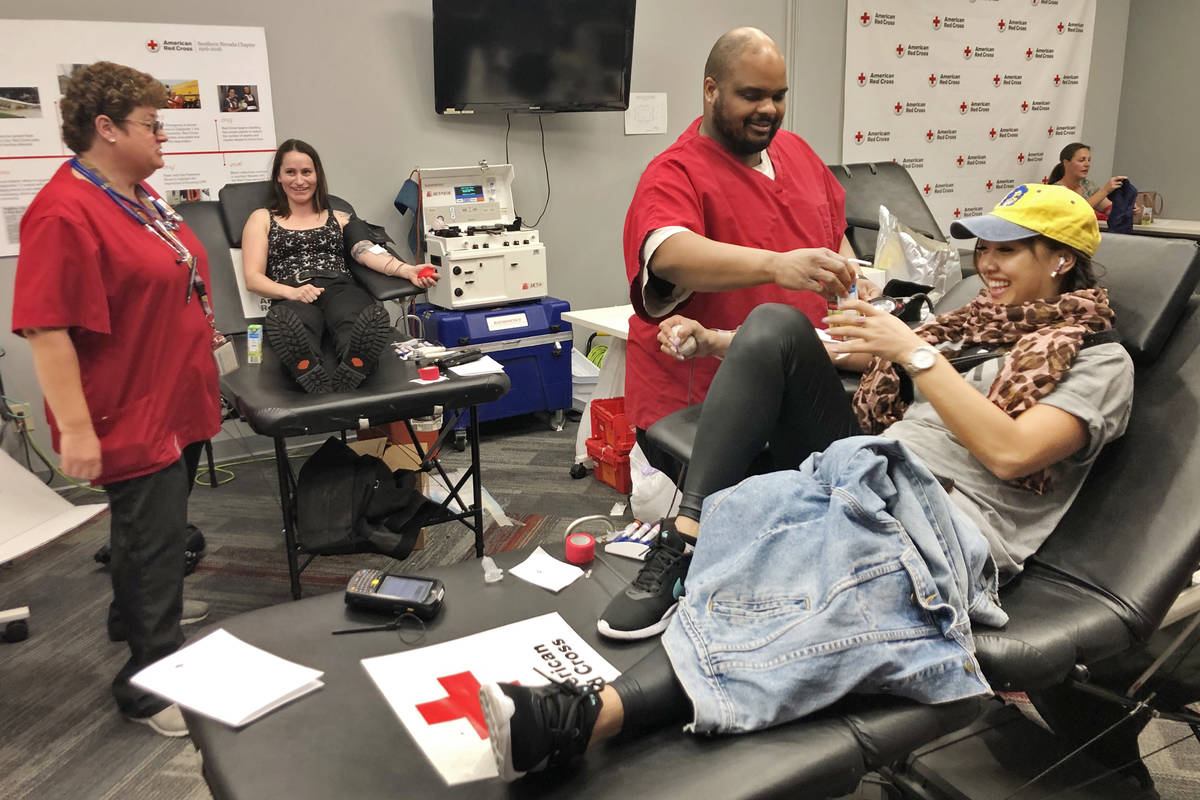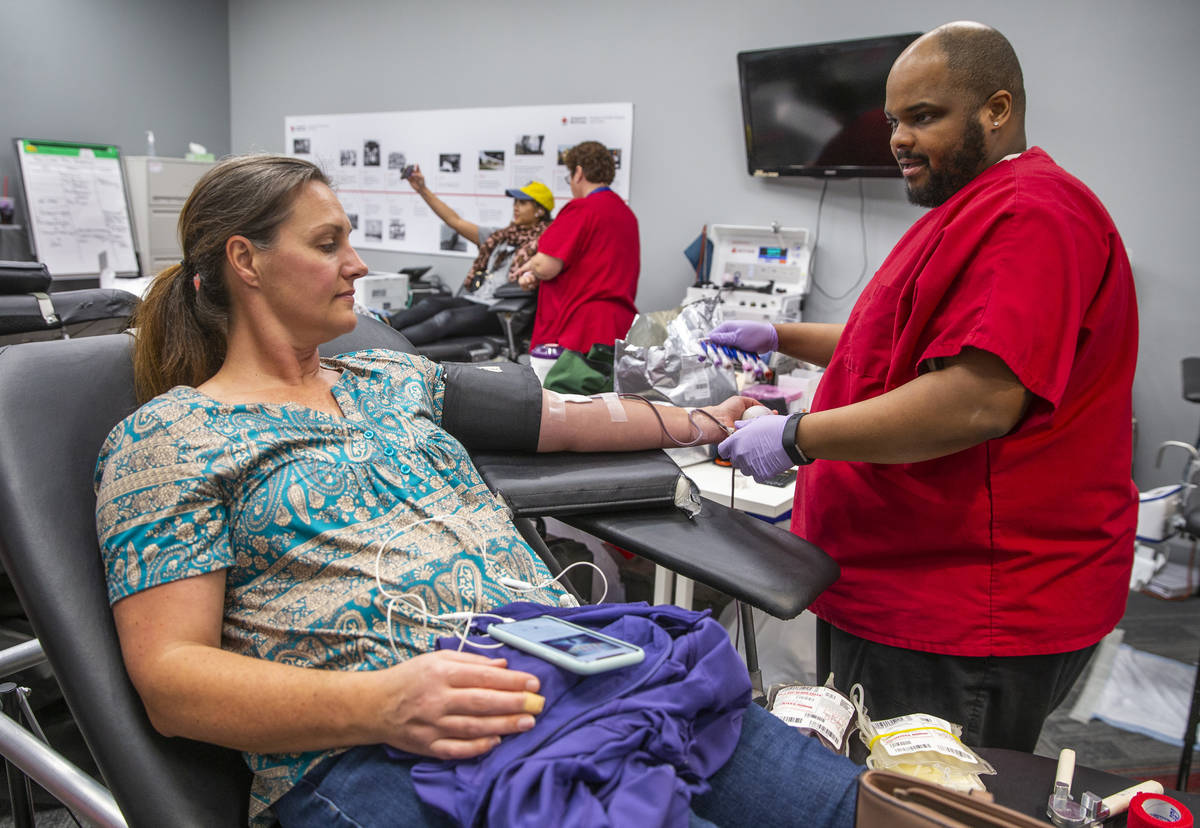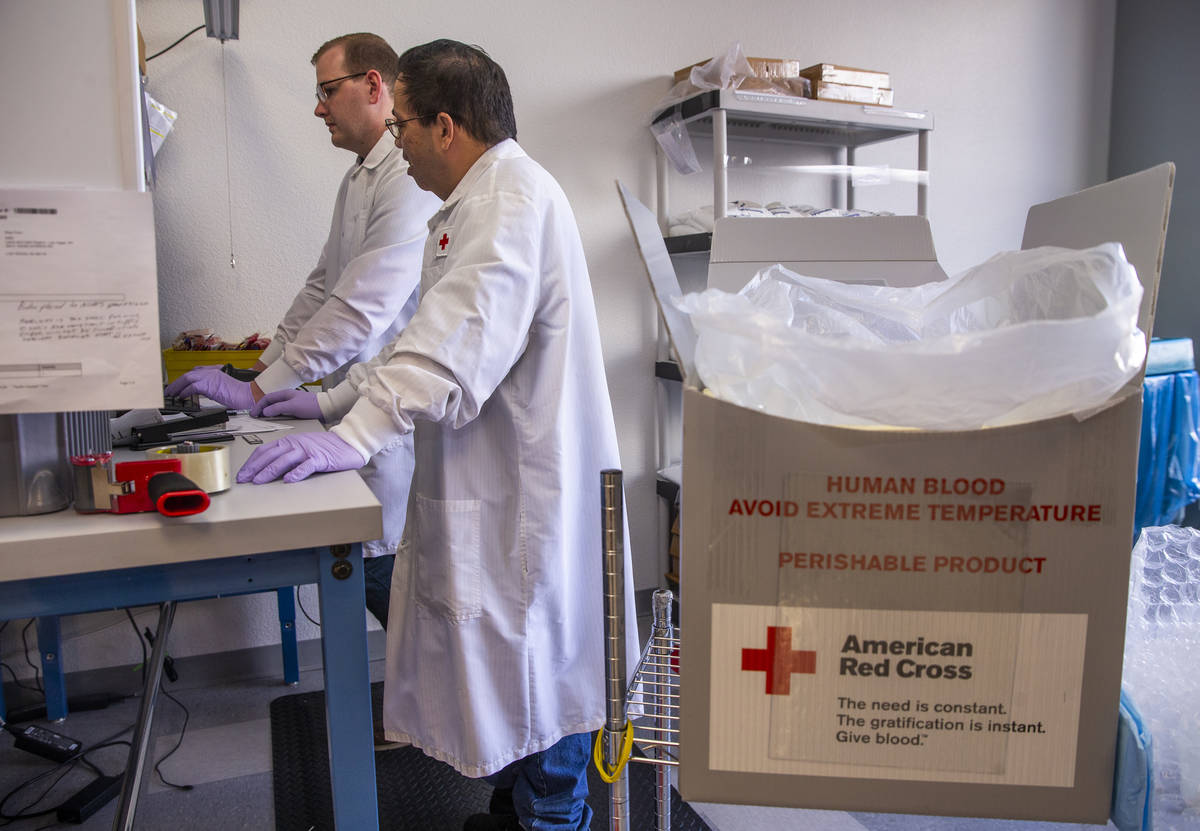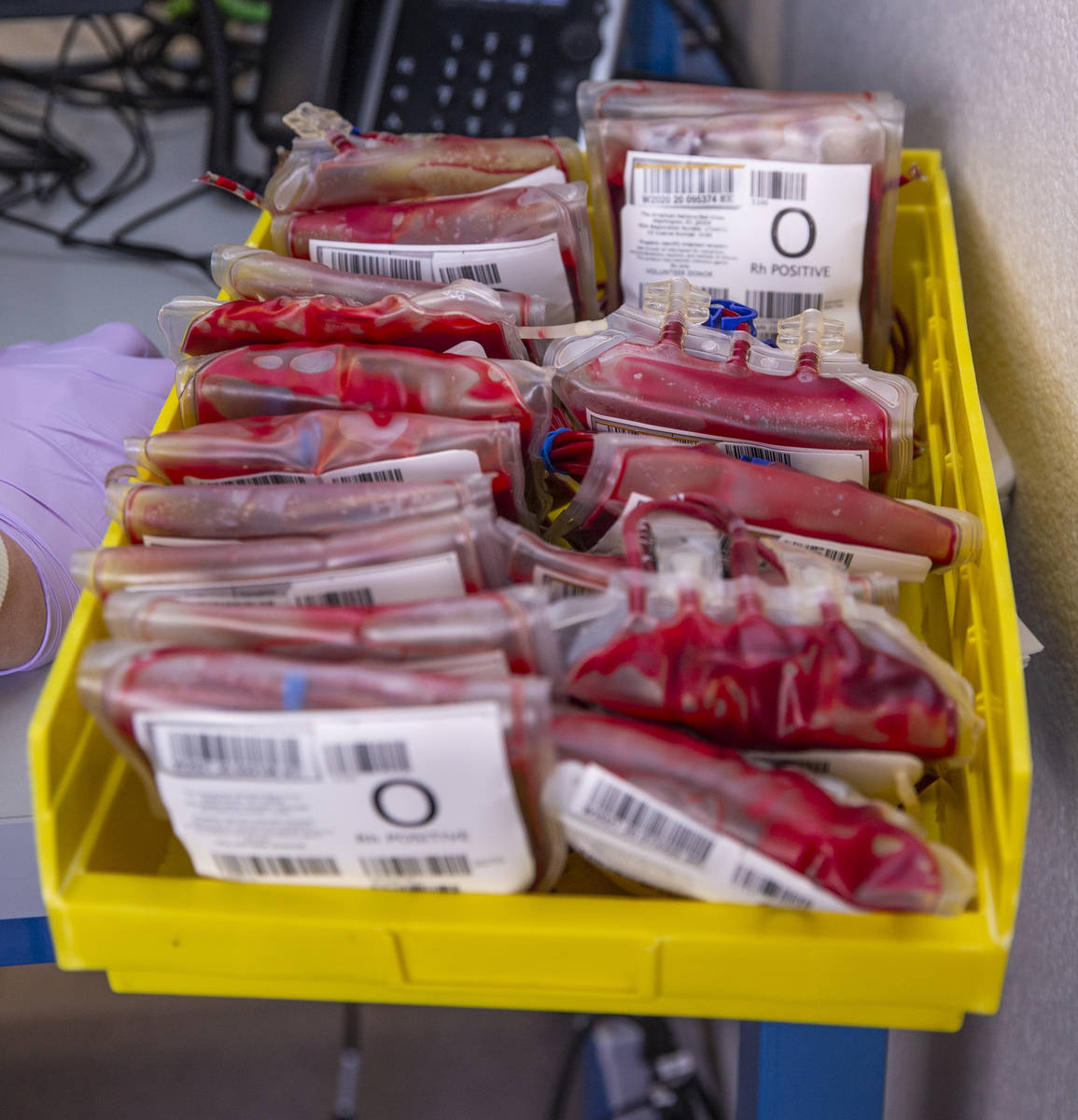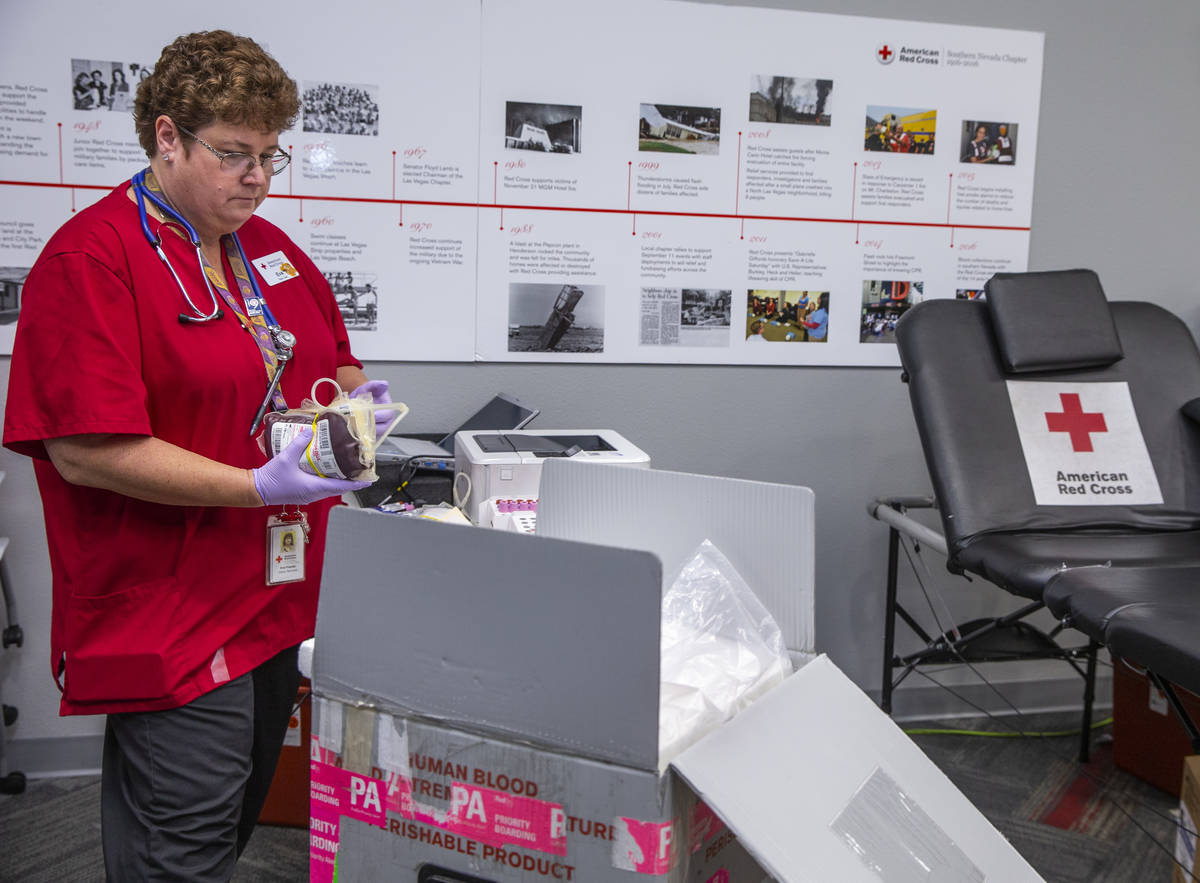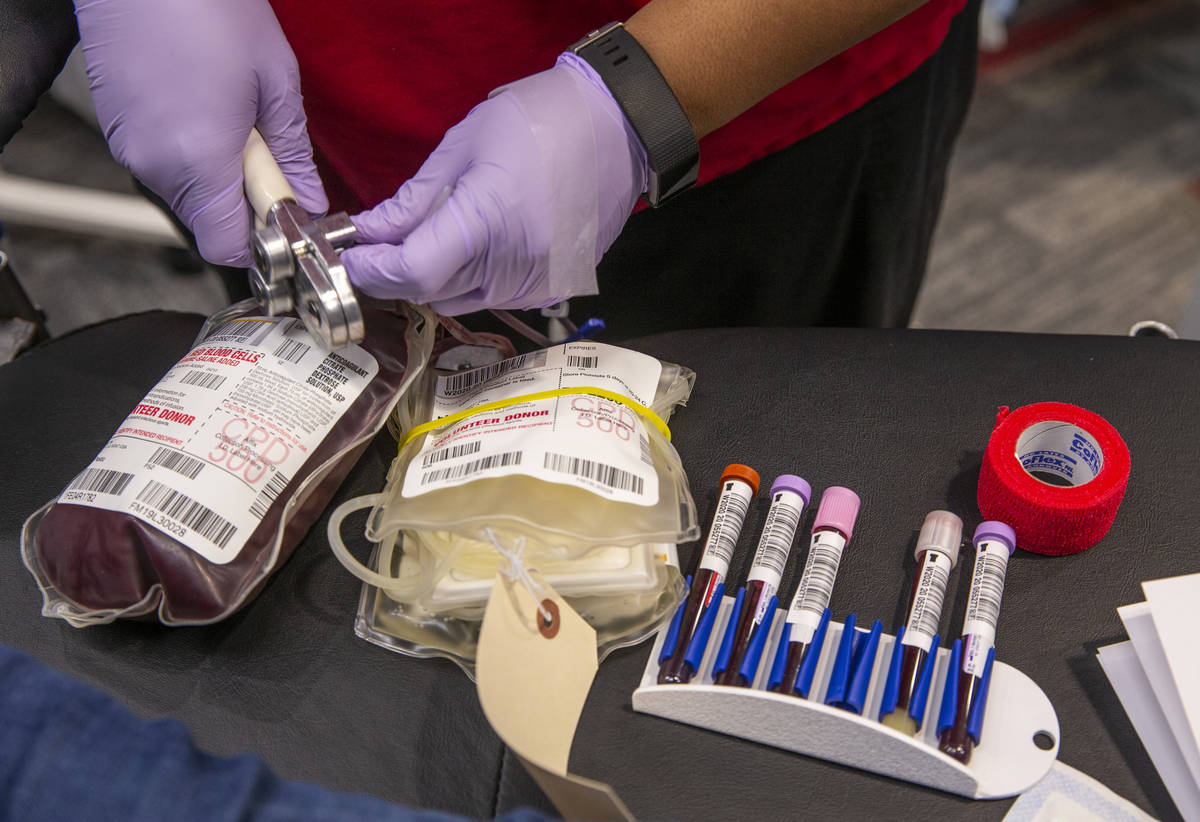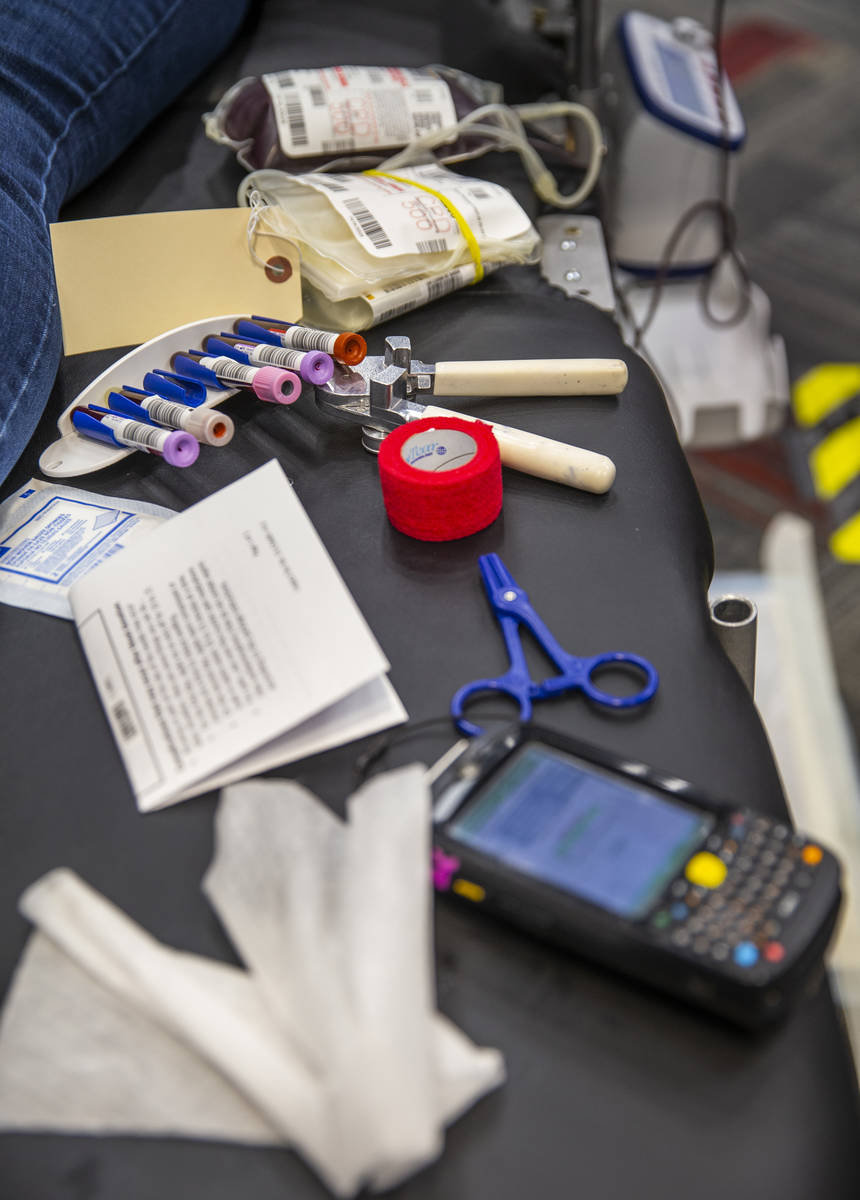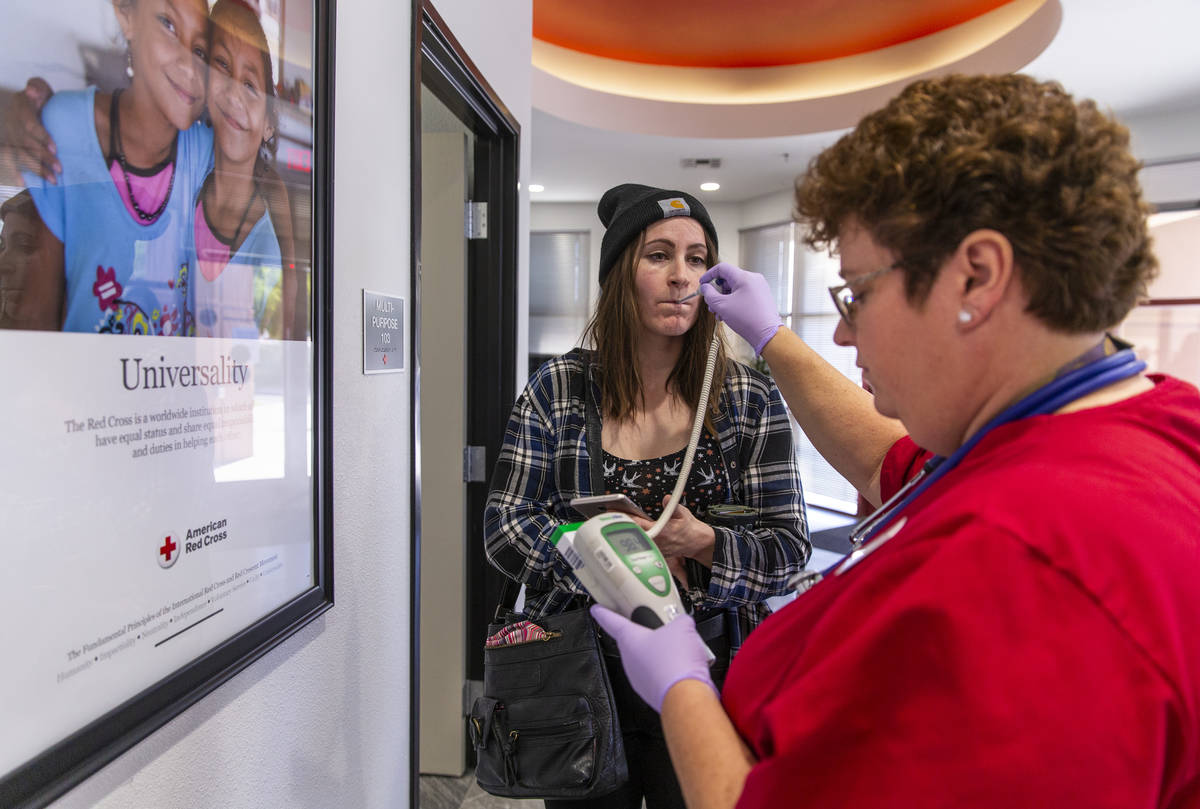Las Vegas faces severe blood shortage: ‘We’ve never seen anything like this’
The Las Vegas Valley is experiencing a severe blood shortage as high school and college campus closures have forced dozens of blood drive cancellations amid the coronavirus pandemic.
The campus drives typically bring in about 20 percent of the American Red Cross’ donor base in Southern Nevada, according to spokeswoman Cynthia De La Torre.
In the past few weeks, private businesses have also canceled internal blood drives meant for employees. That’s because more and more employers are asking employees to work from home, De La Torre said.
In the wake of about 50 local blood drive cancellations and counting, the organization estimates that more than 3,000 local blood donations have gone uncollected. Nationally, about 2,700 American Red Cross drives have been canceled, resulting in about 86,000 fewer donations.
Vitalant has also been severely affected by canceled community blood drives amid the pandemic, according to Jeannine McCoy, manager of regional donor recruitment for the nonprofit transfusion organization also known as United Blood Services.
Twenty-five percent of Vitalant’s regular donors are typically high school and college students.
“We’ve never seen anything like this before,” McCoy said.
How to donate
The local Red Cross chapter is attempting to mitigate mass blood drive cancellations by moving drives in-house to its south valley office, located at 444 E. Warm Springs Road, Suite 110.
Anyone interested in donating must first make an appointment for any still-scheduled drives at redcrossblood.org/give.
“A blood drive is vital to ensuring the health of the community,” De La Torre said. “So we’re going to continue to try to relocate blood drives to our chapters during this challenging time.”
Out of an abundance of caution, she said, the local Red Cross chapter’s trained staff members are taking the temperature of would-be donors twice — once before they enter any blood drive area and again ahead of blood draw as part of a routine vitals check.
As of Tuesday, McCoy said, Vitalant had not implemented additional temperature checks apart from the routine one ahead of donation.
Vitalant is also taking appointments at 877-258-4825 or bloodhero.com she said. The organization has three blood donation centers in the valley, and as of Thursday each will be open from 7 a.m. to 7 p.m. — an expansion of normal business hours in an attempt to stagger staffing and donations.
McCoy noted that walk-ins may be accepted, too, as several would-be donors have canceled individual appointments amid the pandemic.
Donation considered safe
COVID-19 is a respiratory disease. According to a recent advisory from the Food and Drug Administration, which regulates blood donation centers, it is unknown whether the disease can be transmitted by blood.
But the agency advised that in general, respiratory diseases are not known to be transmitted by the giving or receiving of blood, and there have been no reported cases of the coronavirus as a result of a blood transfusion.
Amid limited information, the agency suggested as a precaution that those diagnosed with COVID-19 wait until at least 28 days after symptoms stop to donate blood, noting that routine donor screening measures already in place should prevent those with any clinical respiratory infections from donating blood.
“As communities are affected, it is imperative that healthy individuals continue to donate blood,” the FDA advisory reads.
The agency also suggested that people wait at least 28 days to donate after close contact with someone who has been diagnosed with COVID-19. And if you receive a diagnosis after giving blood, the agency advises alerting the blood establishment where you donated out of an abundance of caution.
On Tuesday, the Nevada Department of Health and Human Services doubled down on FDA guidelines in a statement.
“Blood donations save lives, and there is no risk of contracting COVID-19 from the blood donation process,” the statement said. “It is vital that healthy people continue to donate blood.”
Routine safety measures
Like the FDA, De La Torre noted that there is no evidence or data to suggest that the coronavirus can be transmitted by people giving or receiving blood.
“We follow safety protocols, which are typical to us, to help prevent the spread of any infection,” she said.
And while public gatherings are discouraged, De La Torre said the appointment process is meant to stagger donations and prevent a line or crowd of people waiting to give blood.
McCoy also said Vitalant is making a point to space out donors at its centers. The organization can also accommodate groups as long as they set up appointments in advance.
She added that staffers always wear gloves and personal protective gear and are required to disinfect donor-touched areas often, as well as after every donation.
Staffers also use sterile, single-use collection sets for each donor and scrub each donor’s arm for 30 seconds before collection, McCoy said. Employees who don’t feel good are required to stay home.
“If you’re feeling healthy and well, it’s OK to come to the center,” she said.
Contact Rachel Crosby at rcrosby@reviewjournal.com or 702-477-3801. Follow @rachelacrosby on Twitter.



